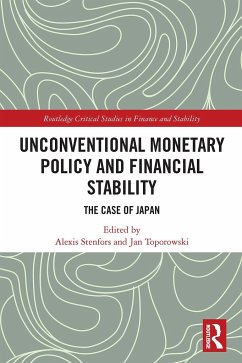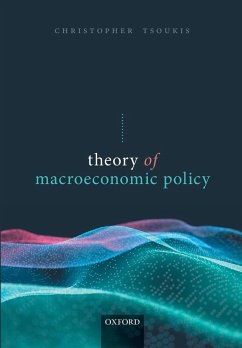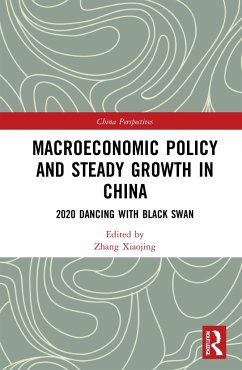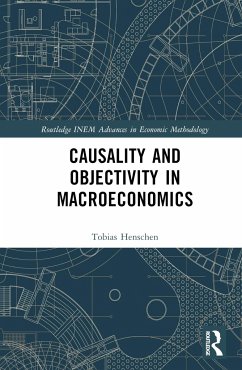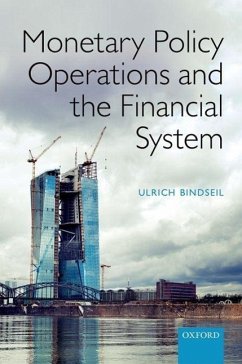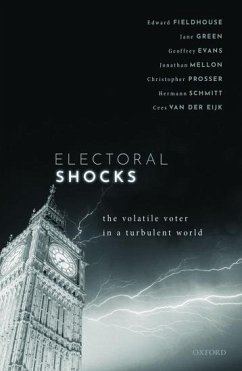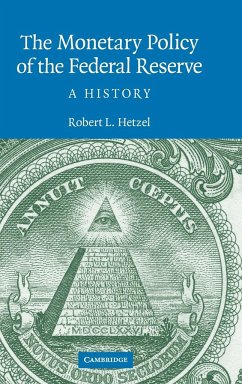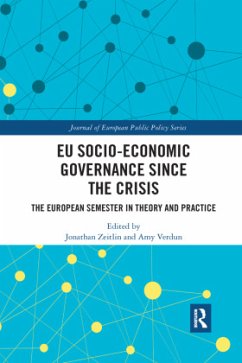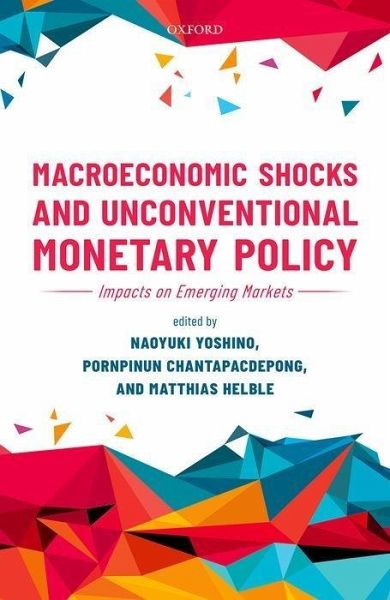
Gebundenes Buch
Macroeconomic Shocks and Unconventional Monetary Policy
Impacts on Emerging Markets
Herausgeber: Yoshino, Naoyuki; Helble, Matthias; Chantapacdepong, Pornpinun
Versandkostenfrei!
Versandfertig in 1-2 Wochen

PAYBACK Punkte
65 °P sammeln!




This book explains how macroeconomic shocks stemming from the global financial crisis and recent unconventional monetary policies in developed economies have affected financial stability in emerging Asia.
Naoyuki Yoshino is Dean of the Asian Development Bank Institute (ADBI) and Professor Emeritus at Keio University, Tokyo, Japan. Professor Yoshino has been a visiting scholar at the Massachusetts Institute of Technology, US, and a Visiting Professor at various universities including the University of New South Wales, Australia, Fondation Nationale des Sciences Politiques, France, and University of Gothenburg, Sweden. Naoyuki's professional career includes membership in numerous government committees. He was named Director of the Japan Financial Services Agency's (FSA) Financial Research Center (FSA Institute) in 2004 and is now Chief Advisor. He was appointed as Chair of the Financial Planning Standards Board in 2007. He has served as Chairperson of the Japanese Ministry of Finance's Council on Foreign Exchange as well as its Fiscal System Council, and has been a Board Member of the Deposit Insurance Corporation of Japan and President of the Financial System Council of the Japanese Government. Pornpinun Chantapacdepong is an Assistant Director at the Balance of Payment Analysis Division, Economic and Policy Department, Monetary policy Group, Bank of Thailand. She was a research fellow at the Asian Development Bank Institute (ADBI) from March 2015- March 2017. She specializes in monetary policy, exchange rate policy, international capital flows, volatility in asset prices, and central bank balance sheets. She holds economics degrees from Thammasat University (BA), the University of Warwick (MSc), and the University of Bristol (PhD). She also taught at Thammasat University, Kasetsart University, University of Tokyo, and Hitotsubashi University. Matthias Helble is Senior Economist and Co-Chair of the Research Department of the Asian Development Bank Institute (ADBI). His research focus lies in the areas of international economics as well as health economics. His work has been published in flagship reports of international organizations as well as in numerous books and scientific journals. Matthias began his professional career in the trade team of the Development Research Group of the World Bank in Washington, DC, before joining the World Health Organization in Geneva, Switzerland. He then worked as an economist for the World Trade Organization in the areas of environment, climate change, and technical standards. Matthias Helble joined ADBI in August 2013. He holds degrees in economics from the University of Tübingen (BA, MSc) in Germany, the University of Wisconsin-Madison (MA) in the United States, and the Graduate Institute of International and Development Studies (MSc, PhD) in Geneva.
Produktdetails
- Verlag: Oxford University Press
- 2. Auflage
- Seitenzahl: 346
- Erscheinungstermin: 20. August 2019
- Englisch
- Abmessung: 240mm x 161mm x 23mm
- Gewicht: 670g
- ISBN-13: 9780198838104
- ISBN-10: 0198838107
- Artikelnr.: 54682363
Herstellerkennzeichnung
Libri GmbH
Europaallee 1
36244 Bad Hersfeld
gpsr@libri.de
Für dieses Produkt wurde noch keine Bewertung abgegeben. Wir würden uns sehr freuen, wenn du die erste Bewertung schreibst!
Eine Bewertung schreiben
Eine Bewertung schreiben
Andere Kunden interessierten sich für




